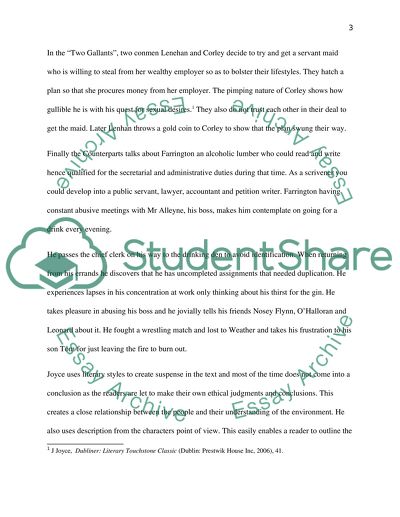Cite this document
(“Dubliners: An Analysis of Four Short Stories Essay”, n.d.)
Retrieved from https://studentshare.org/literature/1402088-dubliners-an-analysis-of-four-short-stories
Retrieved from https://studentshare.org/literature/1402088-dubliners-an-analysis-of-four-short-stories
(Dubliners: An Analysis of Four Short Stories Essay)
https://studentshare.org/literature/1402088-dubliners-an-analysis-of-four-short-stories.
https://studentshare.org/literature/1402088-dubliners-an-analysis-of-four-short-stories.
“Dubliners: An Analysis of Four Short Stories Essay”, n.d. https://studentshare.org/literature/1402088-dubliners-an-analysis-of-four-short-stories.


